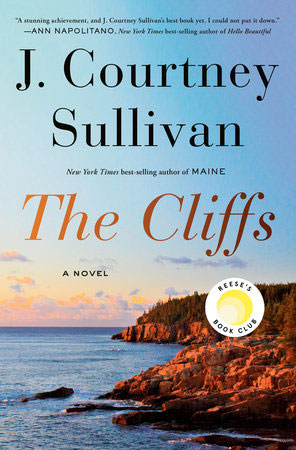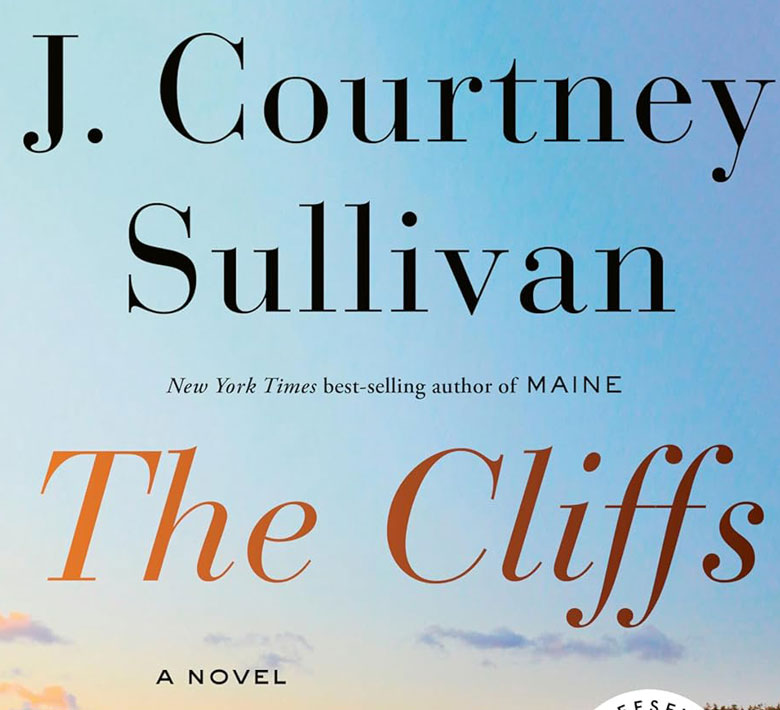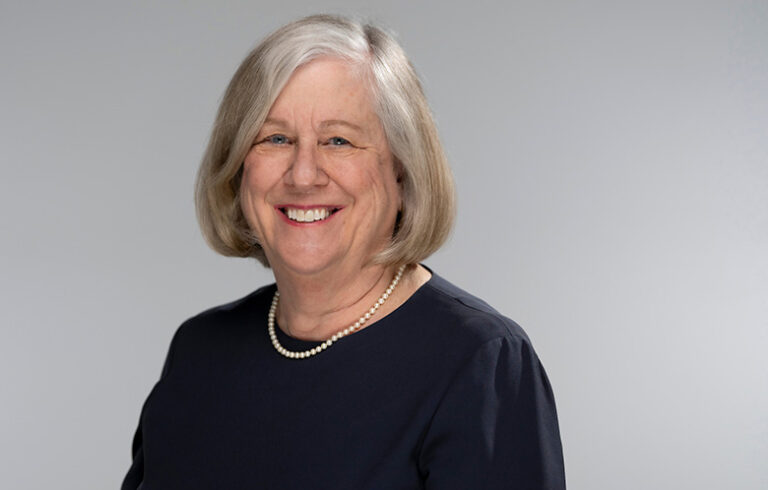The Cliffs
By J. Courtney Sullivan; Knopf (2024)
Jane Flanagan comes from chaos. Her single mother devoted most of her life to booze and men, and toward the end of it, to trading in secondhand goods. Jane’s sister did not exactly follow in their mom’s footsteps, but pretty close.
Jane, we quickly learn in J. Courtney Sullivan’s novel The Cliffs, wanted out of her mother’s life on the coast of southern Maine from the time she was a teenager. “What Would My Mother Not Do?” became her guiding principle in life as she worked to become an honors student in high school, to graduate from Wesleyan University, get advanced degrees from Yale, and finally land a fairly prestigious job as an archivist at the Schlesinger Library at the Harvard Radcliffe Institute.
It’s pretty difficult, though, to exceed your native social means.
The setting the story ripples out from is a 19th century mansion set on sharp cliffs on the shore of fictional Awadapquit, Maine. It’s abandoned and decaying when Jane uses it as an escape during her high school years. It has a House of Usher feel to it early on, and sure enough, when the unlikely new owners move in a couple of decades later, there seems to be a ghost.
So questions about who is this ghost, what is the history of the house, and what is actually happening with Jane, all take shape…
The ghost is detected by Genevieve, the filthy rich and somewhat neurotic wife who is the driving force behind the acquisition of the dilapidated place. Undeterred, she has it completely modernized, much to the disgruntlement of those who prefer the grounds remain as they had been as long as anyone can remember.
Jane, on a gloomy return home from Massachusetts, crosses paths with Genevieve, who discovers Jane is a professional researcher. Rich-woman style, she proceeds to bully Jane into researching the history of the house.

Circumstances being what they are—Jane has been placed on leave from her job and separated from her loving, too-good-to-be-true husband, David—Jane reluctantly takes the gig.
So questions about who is this ghost, what is the history of the house, and moreover, what is actually happening with Jane, all take shape as the main drivers of the story’s plot.
Jane has an old friend in town named Allison, who turns out, underneath her self-constructed image as dynamic Mom-Community Member-Businesswoman, to be sort of devious. Jane and Allison think and say a lot of passive-aggressive things about Genevieve, among others, and they’re not always thinking kind thoughts about each other, either. At one crucial point Allison tricks Jane into visiting a psychic in an effort to figure out who Genevieve’s ghost might be.
The visit to a psychic fair on Mount Desert Island makes an interesting episode and turns out to be the rising action in the gothic strand of the plot. For the latter part of the novel focuses mainly on Question 3: What is going on with Jane.
This is a book, as author Sullivan has elsewhere characterized her novels, about women for women. So eventually the predominant narrative thread becomes a detailed look inside Jane, her conflicted feelings about her dissolute mother, the details of her furloughs from her job and marriage, and a subtler problem—namely, that Jane is from a chaotic lower-middle-class household, but trying to live up to the prim and proper, not to say sometimes holier-than-thou, upper-middle-class mores of Harvard-Radcliffe society. She does not seem to be up to it.
Hammered onto the sides of these main themes, like screened-in additions on a dwelling, are a preoccupation with Native American history and a long, interruptive passage later in the book about women associated with the house in the 19th century.
The Cliffs starts out with a gothic feel, then steadily shifts its footing to a fairly typical contemporary depiction of the main character’s chaotic emotional life. The plot moves along pretty well overall, the characters are mainly well-drawn, and the narrative is seasoned with naturally used colloquialisms from well-to-do kitchen tables and college campuses. It’s a nice book.
J. Courtney Sullivan grew up in eastern Massachusetts, attended Smith College, and is the author of the novels Maine, The Engagements, and Commencement, among others.
Dana Wilde is a former English professor and newspaper editor who lives in Waldo County.





